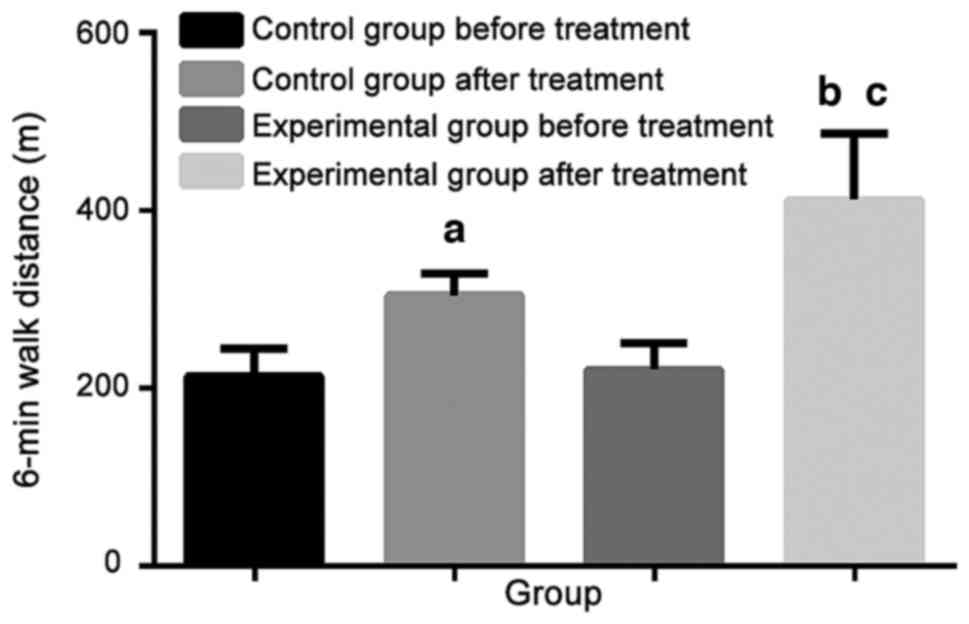|
1
|
Ceccato A, Cilloniz C, Ranzani OT,
Menendez R, Agusti C, Gabarrus A, Ferrer M, Sibila O, Niederman MS
and Torres A: Treatment with macrolides and glucocorticosteroids in
severe community-acquired pneumonia: A post-hoc exploratory
analysis of a randomized controlled trial. PLoS One.
12:e01780222017. View Article : Google Scholar : PubMed/NCBI
|
|
2
|
Feikin DR, Fu W, Park DE, Shi Q, Higdon
MM, Baggett HC, Brooks WA, Knoll Deloria M, Hammitt LL, Howie SRC,
et al: PERCH Study Group: Is higher viral load in the upper
respiratory tract associated with severe pneumonia? Findings From
the PERCH Study. Clin Infect Dis. 64 suppl_3:S337–S346. 2017.
View Article : Google Scholar : PubMed/NCBI
|
|
3
|
Agweyu A, Gathara D, Oliwa J, Muinga N,
Edwards T, Allen E, Maleche-Obimbo E, English M, Aweyo F, Awuonda
B, et al: Severe Pneumonia Study Group: Oral amoxicillin versus
benzyl penicillin for severe pneumonia among kenyan children: A
pragmatic randomized controlled noninferiority trial. Clin Infect
Dis. 60:1216–1224. 2015. View Article : Google Scholar : PubMed/NCBI
|
|
4
|
Tagami T, Matsui H, Horiguchi H, Fushimi K
and Yasunaga H: Recombinant human soluble thrombomodulin and
mortality in severe pneumonia patients with sepsis-associated
disseminated intravascular coagulation: An observational nationwide
study. J Thromb Haemost. 13:31–40. 2015. View Article : Google Scholar : PubMed/NCBI
|
|
5
|
Patel BK and Hall JB: Perioperative
physiotherapy. Curr Opin Anaesthesiol. 26:152–156. 2013. View Article : Google Scholar : PubMed/NCBI
|
|
6
|
McCauley P and Datta D: Management of COPD
patients in the intensive care unit. Crit Care Nurs Clin North Am.
24:419–430. 2012. View Article : Google Scholar : PubMed/NCBI
|
|
7
|
Spruit MA, Singh SJ, Garvey C, ZuWallack
R, Nici L, Rochester C, Hill K, Holland AE, Lareau SC, Man WD, et
al: ATS/ERS Task Force on Pulmonary Rehabilitation: An official
American Thoracic Society/European Respiratory Society statement:
Key concepts and advances in pulmonary rehabilitation. Am J Respir
Crit Care Med. 188:e13–e64. 2013. View Article : Google Scholar : PubMed/NCBI
|
|
8
|
Ngari MM, Fegan G, Mwangome MK, Ngama MJ,
Mturi N, Scott JAG, Bauni E, Nokes DJ and Berkley JA: Mortality
after inpatient treatment for severe pneumonia in children: A
cohort study. Paediatr Perinat Epidemiol. 31:233–242. 2017.
View Article : Google Scholar : PubMed/NCBI
|
|
9
|
Esteban A, Frutos-Vivar F, Muriel A,
Ferguson ND, Peñuelas O, Abraira V, Raymondos K, Rios F, Nin N,
Apezteguía C, et al: Evolution of mortality over time in patients
receiving mechanical ventilation. Am J Respir Crit Care Med.
188:220–230. 2013. View Article : Google Scholar : PubMed/NCBI
|
|
10
|
Young D, Harrison DA, Cuthbertson BH,
Rowan K and Collaborators F: TracMan Collaborators: Effect of early
vs late tracheostomy placement on survival in patients receiving
mechanical ventilation: The TracMan randomized trial. JAMA.
309:2121–2129. 2013. View Article : Google Scholar : PubMed/NCBI
|
|
11
|
Spruit MA, Pitta F, Garvey C, ZuWallack
RL, Roberts CM, Collins EG, Goldstein R, McNamara R, Surpas P,
Atsuyoshi K, et al: ERS Rehabilitation and Chronic Care, and
Physiotherapists Scientific Groups; American Association of
Cardiovascular and Pulmonary Rehabilitation; ATS Pulmonary
Rehabilitation Assembly and the ERS COPD Audit team: Differences in
content and organisational aspects of pulmonary rehabilitation
programmes. Eur Respir J. 43:1326–1337. 2014. View Article : Google Scholar : PubMed/NCBI
|
|
12
|
Ryerson CJ, Cayou C, Topp F, Hilling L,
Camp PG, Wilcox PG, Khalil N, Collard HR and Garvey C: Pulmonary
rehabilitation improves long-term outcomes in interstitial lung
disease: A prospective cohort study. Respir Med. 108:203–210. 2014.
View Article : Google Scholar : PubMed/NCBI
|
|
13
|
Corhay JL, Dang DN, Van Cauwenberge H and
Louis R: Pulmonary rehabilitation and COPD: Providing patients a
good environment for optimizing therapy. Int J Chron Obstruct
Pulmon Dis. 9:27–39. 2014.PubMed/NCBI
|
|
14
|
Lacasse Y, Brosseau L, Milne S, Martin S,
Wong E, Guyatt GH and Goldstein RS: Pulmonary rehabilitation for
chronic obstructive pulmonary disease. Cochrane Database Syst Rev.
88:CD0037932002.
|
|
15
|
Chang G, Meadows ME, Orav EJ and Antin JH:
Mental status changes after hematopoietic stem cell
transplantation. Cancer. 115:4625–4635. 2009. View Article : Google Scholar : PubMed/NCBI
|
|
16
|
McCarthy C, Brennan JR, Brown L, Donaghy
D, Jones P, Whelan R, McCormack N, Callanan I, Ryan J and McDonnell
TJ: Use of a care bundle in the emergency department foracute
exacerbations of chronic obstructive pulmonary disease:a
feasibility study. Int J Chron Obstruct Pulmon Dis. 8:605–611.
2013. View Article : Google Scholar : PubMed/NCBI
|
|
17
|
Güell MR, Cejudo P, Ortega F, Puy MC,
Rodríguez-Trigo G, Pijoan JI, Martinez-Indart L, Gorostiza A, Bdeir
K, Celli B, et al: Benefits of long-term pulmonary rehabilitation
maintenance program in patients with severe chronic obstructive
pulmonary sisease. Three-Year Follow-up. Am J Respir Crit Care Med.
195:622–629. 2017. View Article : Google Scholar : PubMed/NCBI
|
|
18
|
Huppmann P, Sczepanski B, Boensch M,
Winterkamp S, Schönheit-Kenn U, Neurohr C, Behr J and Kenn K:
Effects of inpatient pulmonary rehabilitation in patients with
interstitial lung disease. Eur Respir J. 42:444–453. 2013.
View Article : Google Scholar : PubMed/NCBI
|
|
19
|
Struik FM, Lacasse Y, Goldstein RS,
Kerstjens HA and Wijkstra PJ: Nocturnal noninvasive positive
pressure ventilation in stable COPD: A systematic review and
individual patient data meta-analysis. Respir Med. 108:329–337.
2014. View Article : Google Scholar : PubMed/NCBI
|
|
20
|
Tokarski S, Tokarska K, Schwarz E,
Obrebska A, Mejer A and Kowalski J: Blood gas analysis, blood
saturation and chosen parameters of spirometric examination in
NSCLC patients undergoing chemotherapy and pulmonary
rehabilitation. Pol Merkur Lekarski. 36:249–253. 2014.PubMed/NCBI
|
















